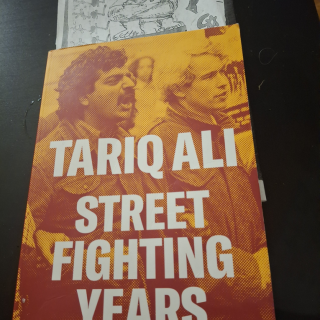Since Donald Trump first landed tweet-first in the Oval Office, armchair psychiatrists have been trying to figure him out.
Why does he have so little regard for the truth—or for anything outside of his own self-interest? Why does he work so hard to sow hate and controversy? Why, in short, has his presidency been an unending freak show?
While no theory can explain Trump entirely, director Matt Turnauer offers valuable insight with the documentary Where’s My Roy Cohn? Even though the titular subject is an infamous figure from the 1950s—and even though Trump himself doesn’t appear until an hour or so in—Turnauer makes it clear that the 45th president is his real target.
Roy Cohn was a whiz kid of an attorney who won fame by (1) helping to prosecute and ultimately execute suspected spies Julius and Ethel Rosenberg despite shaky evidence, and (2) serving as chief counsel to red-baiting Sen. Joseph McCarthy. In both roles, he established himself as a litigator who was ruthless in his quest for victory.
The film notes the ironic fact that Cohn helped McCarthy harass suspected gays as well as communists, even though Cohn himself was a closeted homosexual. In eye-opening footage from the McCarthy hearings, it reveals that Cohn’s sexual leanings—in particular, a possible affair with a handsome colleague who was drafted into the Army—were thought to be behind the senator’s attacks on the military.
The resulting controversy forced Cohn to leave McCarthy’s staff and go into private practice. There, as the film documents, Cohn’s courtroom skills made him the go-to lawyer for New York mobsters.
In the 1970s, his notoriety also brought him to the attention of real estate mogul and landlord Donald Trump, who was being charged with discriminating against African-Americans. Cohn’s aggressive defense of Trump began a long relationship between the two.
According to relatives and acquaintances of Cohn who were interviewed for the film, the two were well-suited to each other, both being grounded in situational ethics. It’s also suggested that Trump learned from Cohn tactics such as:
• When sued, counter-sue to tie up the matter in court.
• When facing accusations, go on the attack to change the subject.
• When forced to settle, never admit you’re wrong. Instead, claim it as a victory.
In general, Cohn comes off as a Trump role model, right down to his gaudy displays of wealth and his ever-present tan. He might still be a role model if he hadn’t succumbed to complications from AIDS in 1986.
If Trump did learn from Cohn, he may also have taken a lesson from what happened to Cohn shortly before his death when a litany of legal transgressions led to his disbarment. According to the film, most of Cohn’s many prominent friends disappeared after he ceased to be a lawyer.
Could Trump find himself equally abandoned if he ceases to be the president? If that thought has crossed his mind, it can only make him even more determined to hold onto the office he is accused of abusing.
Rating: 4 stars (out of 5)
Is wealth defined by what we give away?
After immersing yourself in the cynical world of Roy Cohn, you may want to watch Robin McKenna’s Gift to recover your faith in humanity. Inspired by Lewis Hyde’s book The Gift: Creativity and the Artist in the Modern World, the documentary hops back and forth between several individuals engaged in giving stuff away.
They include a man who offers free services, including one-on-one concerts; artists who donate their work to support an illegal homeless shelter in Rome; an art gallery that gives away flowers with the stipulation that they be regifted to strangers; and a woman who volunteers her time to create enormous contraptions that will be used only once.
Perhaps the project that best sums up the film’s message is Native Canadian Marcus Alfred’s preparations for a potlatch, a traditional ceremony where the host gives away elaborate gifts to the attendees. While making masks and other decorations for the event, Alfred explains that it’s based on his people’s view of wealth: that it’s determined not by what one has, but by what one is able to give away.
Some viewers may struggle with the idea, as it directly contradicts Western society’s focus on accumulating commodities. For that very reason, it’s a mind-expanding concept.
Not all of the segments are quite as effective as Alfred’s, but all remind us that the world would be a better place if we devoted more time to acts of kindness and generosity.
Rating: 3 stars (out of 5)
Where’s My Roy Cohn? and Gift open Nov. 1 at the Gateway Film Center.




